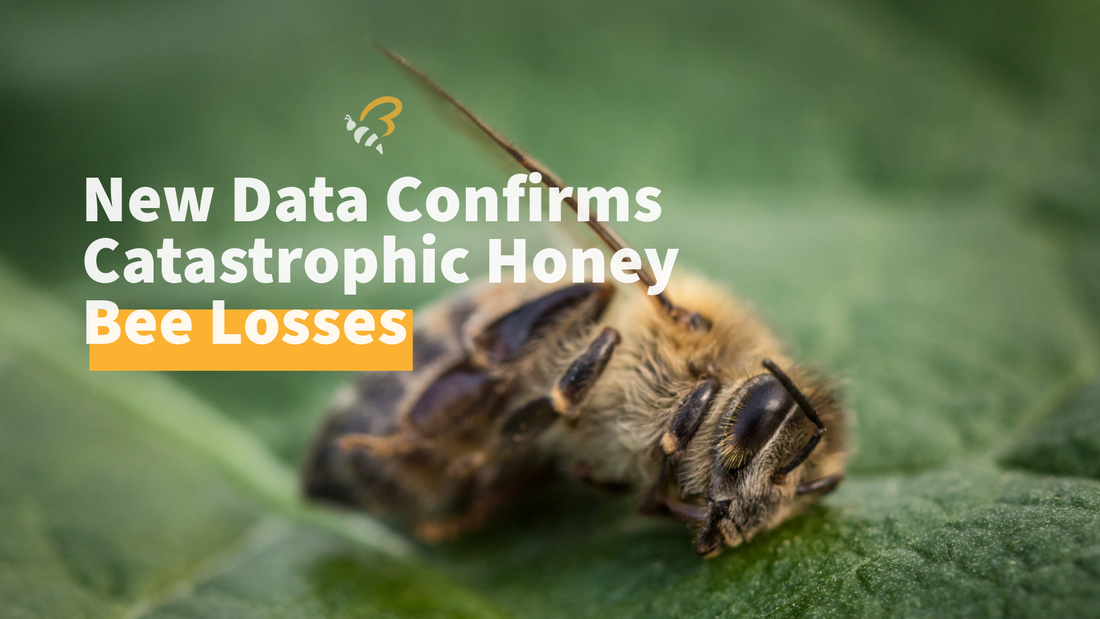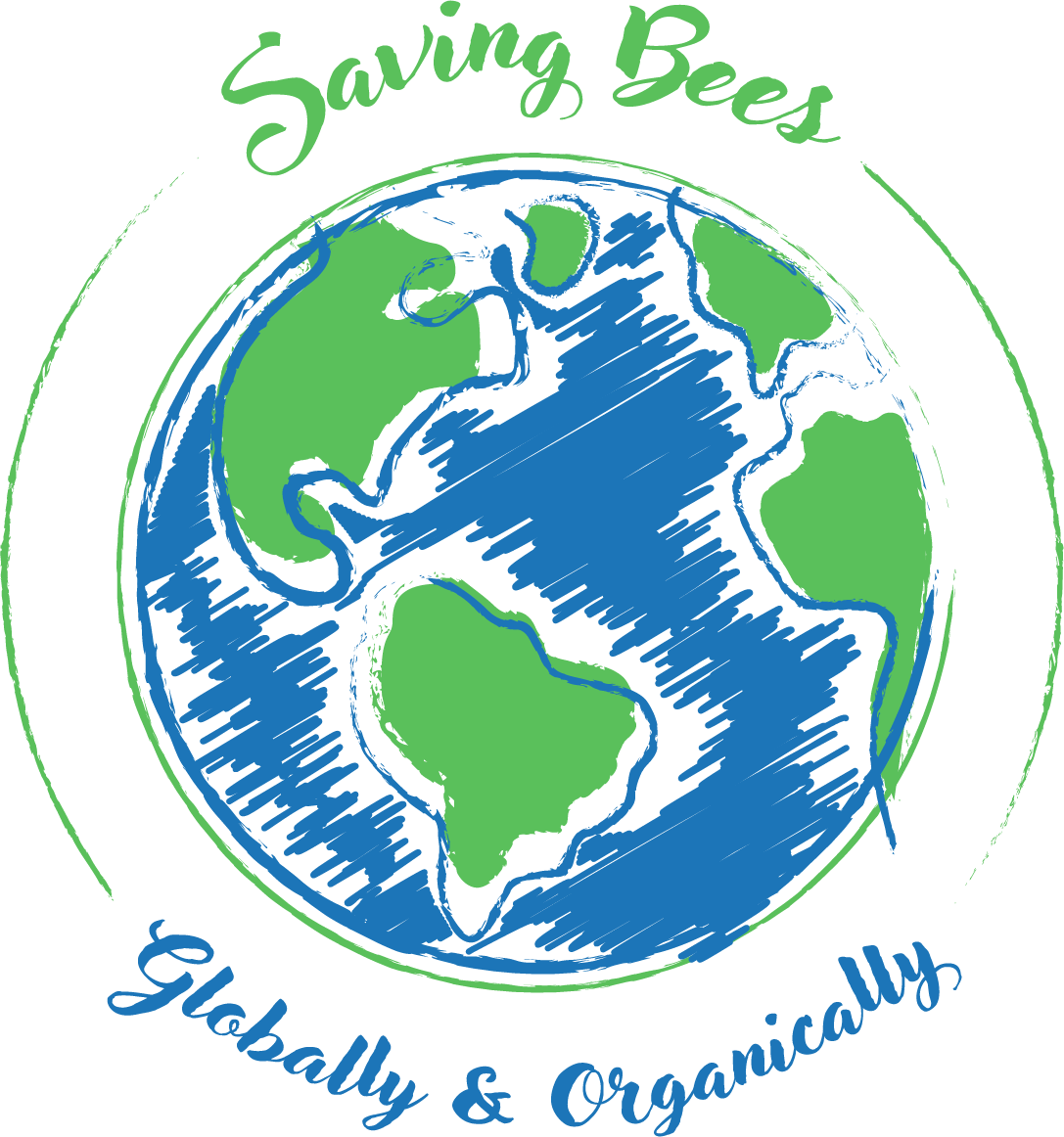
New Data Confirms Catastrophic Honey Bee Losses - Urgent Need for Action!
Share
There’s no doubt that both bees and humans are facing unprecedented events directly tied to our mutual survival. Around 1.6 million colonies were lost in the US alone between June 2024 and January 2025. The economic impact on beekeepers is estimated at over $600 million so far in lost honey production, pollination income, and costs to replace colonies.
Interestingly, a survey administered by Project Apis m., which includes data from an estimated 1.956 million colonies (approximately 72% of the nation’s bees), found that hobbyist beekeepers suffered the lowest losses with an average of 51%, while commercial beekeepers suffered the highest losses at 62%. This represents a complete reversal of typical trends, where commercial beekeepers generally experience lower losses due to their scale, resources, and skilled management practices.
So what’s going on?
According to an article published on Beeculture.com by Project Apis m. on April 3, 2025, USDA-ARS Scientists are conducting a four-tiered investigation to determine potential causes. These include Pathogen Screening, Pesticide Residues & Pollen Diversity, Metagenomic Analysis, and Microbiome & Host-Pathogen Interactions.
Strangely though, they are not studying the effects of Electromagnetic Fields (EMF’s), particularly 5G and other microwave bands from cell towers or power lines. Why not?
Dr. Magda Havas undertook scientific studies in cooperation with Trent University years ago and showed devastating results to bee colonies from radio waves and microwaves. Perhaps the telecommunications industry is just too big and too powerful to show the world the harms that EMF’s have on living species? We’re not sure, but Dr. Scott McArt’s laboratory at Cornell University is conducting pesticide residue analysis on bees, wax, pollen, and honey samples collected from affected colonies — which we believe is a good thing.
USDA-ARS and university labs across the nation are analyzing potential contributing factors, such as Varroa mite resistance to miticides, but only on one brand, Amitraz. Why only one type of miticide? Shouldn’t all types be tested?
They are also studying environmental factors, including weather conditions — which, for some strange reason, bees have managed to survive just fine for millions of years — but today this is considered a problem worthy of study.
Additionally, they are looking at management factors such as queen replacement, supplemental nutrition, and winter management, and most importantly, chemical exposures, including interactions between pesticides and bee immunity. The question we have is: how many different chemicals are they testing? Is it a complete enough study for all beekeepers to benefit from, considering they use many different types and brands?
And why is it that after decades of study, we continue to see record-breaking losses year after year? Why have they not been able to come up with any definitive answers or solutions after all this time?
Well, many of us understand the answers to these questions all too well. The real answer is: don’t expect the government, its agencies, or big corporations to come and save us.
Remember what Ronald Reagan said when he mentioned the 10 most terrifying words ever spoken: “We’re from the government and we’re here to help you.” What the President meant was that if we’re going to save the world, the bees, and ourselves, it’s up to us — we the people! Nobody else is going to do it for us.
This is the philosophy and mission behind 4RBees.
We know we have an organic solution that truly benefits bee colonies without pesticides or chemicals, and it’s been scientifically proven over many years. But “they” are not the least bit interested in us. Many of you reading this know exactly why, and have already pledged, purchased, and supported us — and for this we are eternally grateful.
We hope you will continue to support our efforts when you can. We are eager to introduce new product offerings later this year that you will find valuable and beneficial in helping us protect bees, pollinators, and the planet.
In the meantime, please share the news and the love by encouraging others you know to support our mission. Share this with everyone! It’s getting critical now, and we all need your help and efforts to continue.
You can find the links to the reports on NBC and ABC News outlets speaking on the newly analyzed data confirming this catastrophe below:
https://www.nbcnews.com/news/
https://abcnews.go.com/US/
Thank you all for reading this article, and thank you for helping to create 4RBees — the mission that could save the world!
Sincerely,
Jake and Brent




1 comment
I have been a beekeeper for 16 years. I have never had the losses that I had in 2024-2025. I lost 6 hives out of 8 hives in my apiary. Beekeepers are pretty tough and resilient and most are able to recoup from some of these losses by catching swarms and splitting hives. I prefer the swarm method. I have a swarm box that the bees Love!! Bait it with a lemon grass oil based product and I’ve caught swarms in days during the spring. I am now up to 6 hives again and still have my swarm box out there to catch any straggler swarms. The key however, is to not have to keep playing catch up, but to solve the reason why we are seeing this big depopulation of Honey Bees. Like many things now days, I don’t think that this depopulation has anything to do with real nature. My belief is that the die offs are on purpose. Not only because of all the poisons that farmers and neighbors alike are using, but also because of pests purposely being brought into our country. If you are paying any attention at all, you have seen that the last 5 years has been a bit “out of the normal”.
I have big hopes for this Pure Cell frequency devise. It is the most logical solution that I have come across in my research to Save the Bees.
Thank You 4rbees!!!